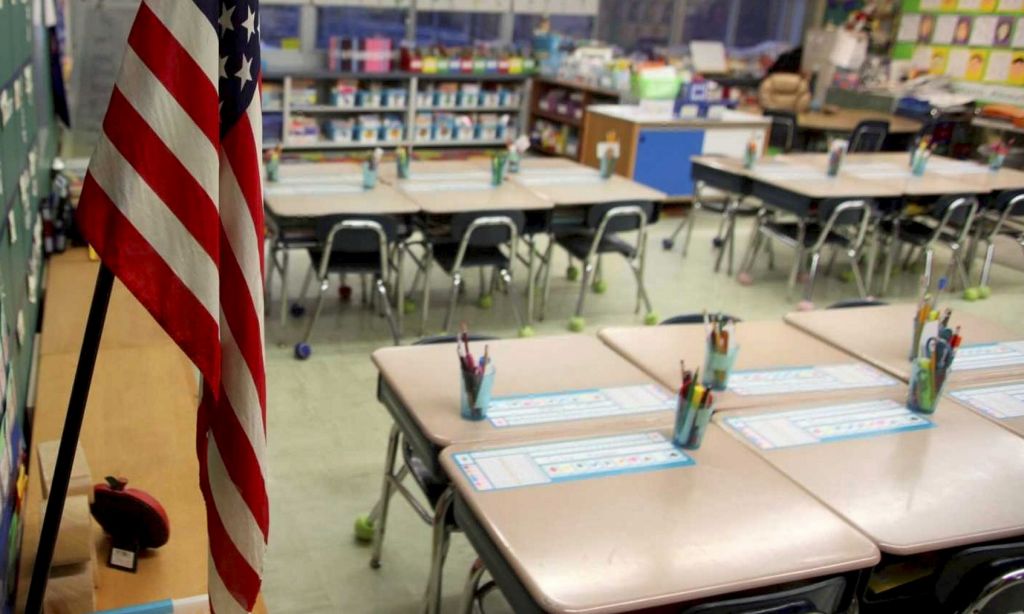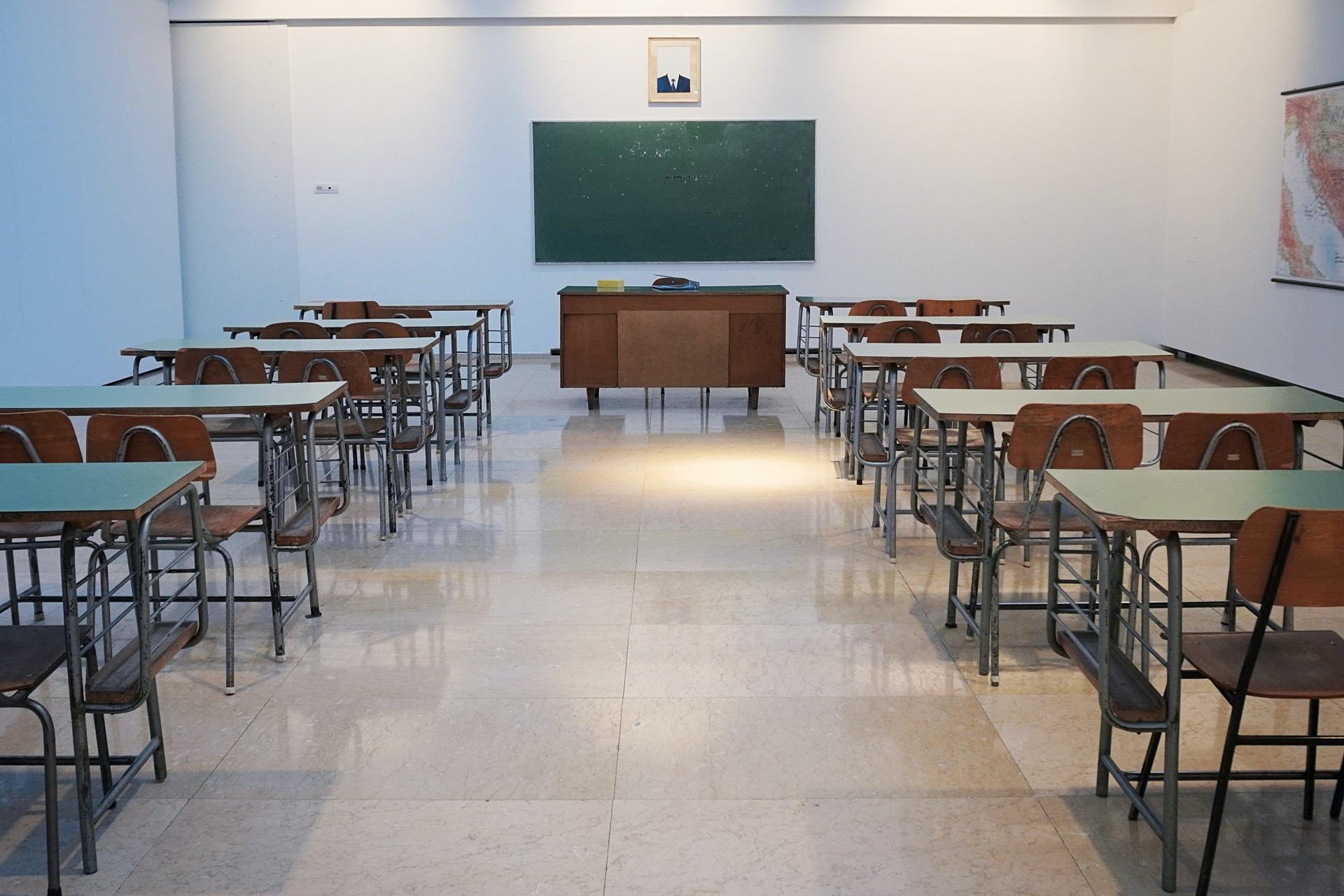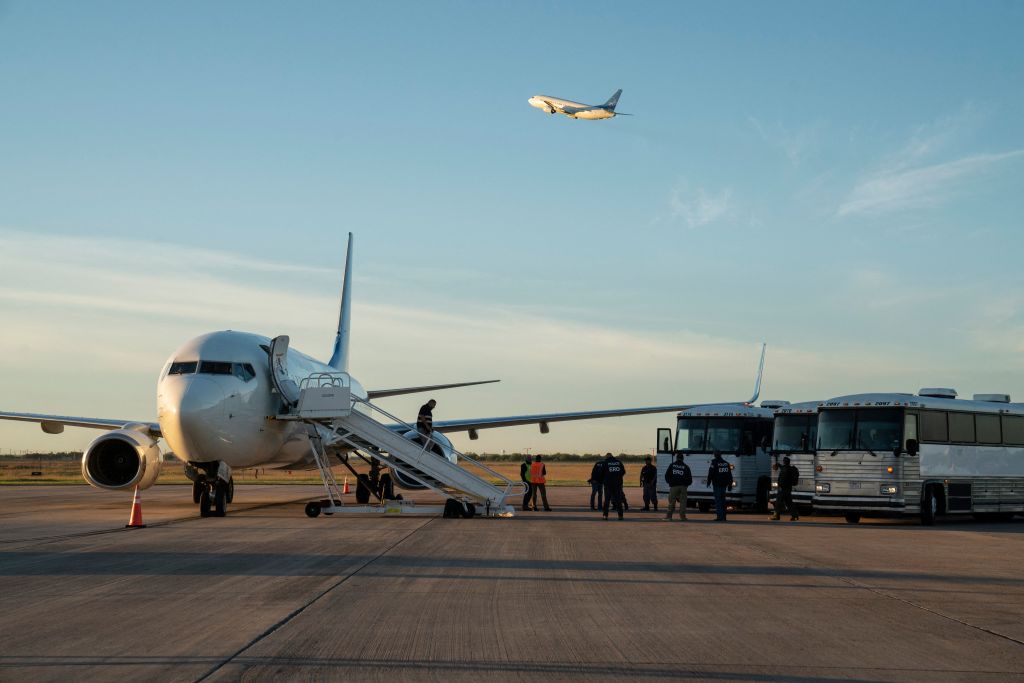The US is facing yet another school year of teacher shortages
As the 2023-2024 school year begins, school districts across the United States are confronted with yet another year of teacher and staff shortages.
This ongoing crisis in the US is not due to firings, retirements or lack of qualifications, but rather to voluntary resignations, according to the US Bureau of Labor Statistics.
Photo: Ivan Aleksic/Unsplash
There are tens of thousands of teacher vacancies in the US, and more than 160,000 jobs are filled by under-qualified teachers, according to research from Tuan Nguyen, a professor at Kansas State University's College of Education, Axios reported.
According to Scholaroo, an education research firm, Washington, Oregon, California, Alaska and Nevada have some of the lowest teacher-to-student ratios across the nation.
Teacher vacancies have been a persistent issue for the last decade, but the problem has been exacerbated by the pandemic, the recent uptick in school shootings, the low salaries and the culture war that’s been going on in the US in recent years, experts say.
“There’s been a teacher shortage for years. What you’re seeing now is that it’s reached a tipping point,” said Randi Weingarten, president of the American Federation of Teachers (AFT) to ‘Today’.
Moreover, Teacher salaries have remained stagnant. Between 1996 and 2021, the inflation-adjusted weekly wages of public school teachers only increased by $29, from $1,319 to $1,348, Slate Magazine reported.
Photo: Kenny Eliason/Unsplash
Compensation was among the reasons AFT members said they were dissatisfied with their jobs, according to the union’s June 2022 survey. Of the teachers surveyed, 75% said their jobs changed for the worse, with 29% of them saying that was due to pay.
But the number of teachers who reported at least some level of dissatisfaction with their jobs rose 33 points since 2020, “years marked by relentless political attacks, persistent shortages, school shootings and flatlining salaries,” according to the union.
Weingarten said in a statement about the survey: “Whether it was mask wars, culture wars, the war on truth, or the devastation in Uvalde, members sacrificed and struggled and carried their schools and their students through the most difficult days of their lives.”
The stress of teaching through the pandemic was another reason that drove teachers away. About 1 in 6 teachers expressed that they would likely leave their job pre-pandemic, but this increased to 1 in 4 by the 2020-2021 school year, according to the State of the U.S. Teacher Survey.
When a mask mandate policy was established in schools, angry parents nationwide started protesting to the point of becoming violent toward teachers and principals in some states, demanding that teachers risk their health at the height of the pandemic.
In the past three years, America also has suggested teachers carry guns to protect kids from gunmen. Several surveys show a majority of teachers don’t want to be armed.
Public school teachers in Florida are now banned from holding classroom instruction about sexual orientation or gender identity after Florida's Gov. Ron DeSantis, signed the controversial “Parental Rights in Education” bill, commonly known as the “Don’t say gay” bill.
But even before the “Don’t say gay” bill was signed into law, Casey Scott, a middle school art teacher in Florida, was fired because she let her LGBTQ students create art that expressed their identity and sexuality.
On top of all that, federal data showed that 80% of schools reported increases in student behavioral issues, including rowdiness, threats, and fighting between students, and aggression toward teachers.
The AFT said one of the best ways to get teachers into the classroom is simply to offer better salaries, something which very few states have done.
However, instead of raising salaries, most school districts have relaxed teaching qualifications to make it easier for new teachers to begin their careers. From allowing teachers into the classroom before they're fully certified, to hiring those without any degree at all.
In Midland, Texas, the district is working with the local university, UT-Permian Basin, to bring in college students for paid residencies and apprenticeships, a practice that's relatively unheard of in the education world, according to Axios.
Photo: Christina wocintechchat.com/Unsplash
In Florida, military veterans who have served four years can now become teachers even if they don't hold a bachelor's degree, Reuters reported.
AFT’s president, Randi Weingarten, believes that reducing job requirements to teach young people sends a negative message to an already bruised profession she told ‘Today’.
“Would we even be thinking about this if it was a pilot? Or an engineer? Or a doctor?” asked Weingarten. “It's part of the disrespect that you think that you can just put a body in front of kids”.
According to a recent poll by the US Bureau of Labor Statistics, 45% of teachers say they are not respected or viewed as professionals by their society.
More for you
Top Stories




































